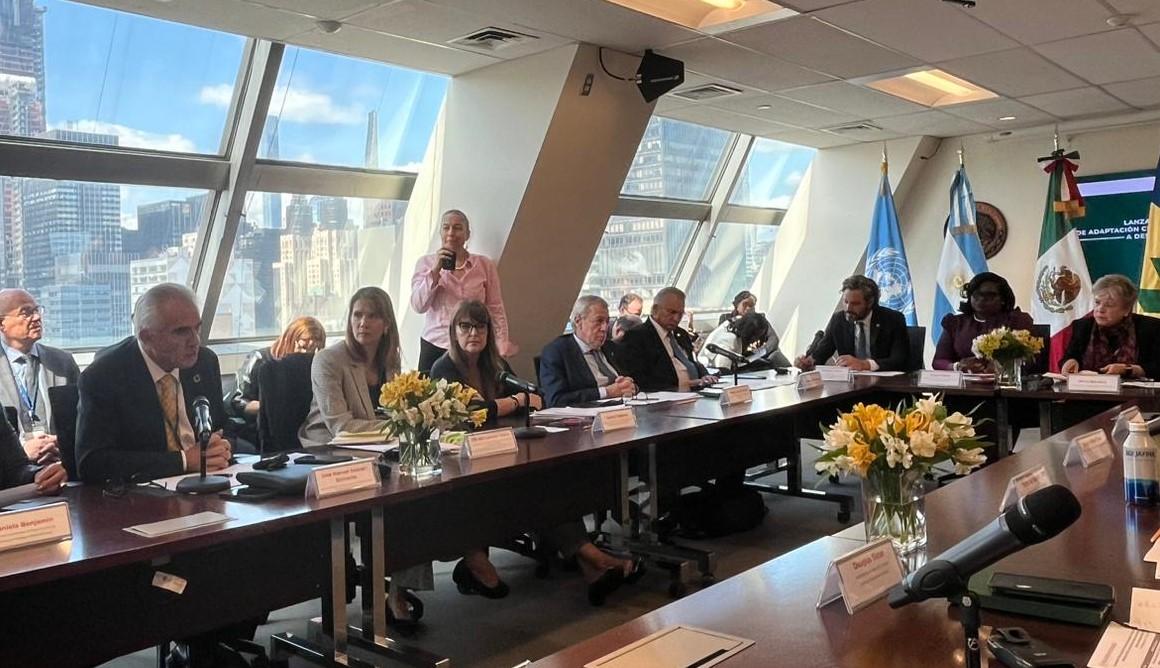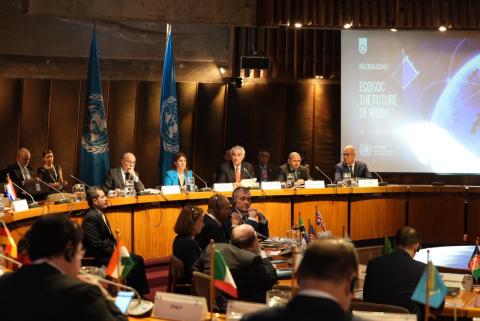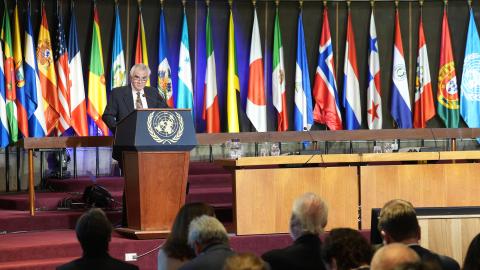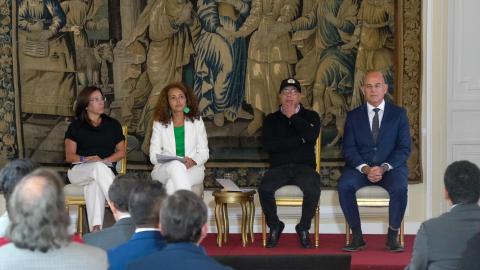News
The Economic Commission for Latin America and the Caribbean (ECLAC), represented by its Executive Secretary José Manuel Salazar-Xirinachs, participated on Tuesday, September 19 in the launch of the Climate Adaptation and Comprehensive Response to Natural Disasters Fund of the Community of Latin American and Caribbean States (CELAC), which was held at the site of Mexico’s Permanent Mission to the United Nations, in New York, in the framework of the global organization’s 78th General Assembly.
There, the UN regional commission reiterated its commitment to the Fund (known by its Spanish acronym, FACRID), which it is serving to administer at the request of CELAC. FACRID aims to secure resources and implement projects for disaster prevention, reduction, mitigation, response and recovery in the region.
The Fund was established at the VI Summit of Heads of State and Government of CELAC, held on September 18, 2021 in Mexico City, where it was determined that it would be administered by ECLAC and financed by CELAC’s Member States and donors from outside the region. Subsequently, at the meeting of CELAC Foreign Ministers at which Argentina assumed the regional group’s pro tempore presidency – on January 7, 2022 – ECLAC signed an agreement to give impetus to the Fund’s operations with the governments of Argentina and Mexico (which was CELAC’s outgoing president at that time).
The meeting to launch FACRID held yesterday in New York was led by Mexico’s Minister of Foreign Affairs, Alicia Bárcena, and drew the participation of Ministers and Deputy Ministers from Argentina, Brazil, Chile, Colombia, Costa Rica, Guyana, Honduras, Panama and Saint Vincent and the Grenadines, along with authorities from the CAF - Development Bank of Latin America and the Caribbean.
“Our latest Economic Survey (of Latin America and the Caribbean) report, presented two weeks ago, analyzes the economic situation and is also dedicated to the issue of climate change, its impacts and the costs of adaptation,” José Manuel Salazar-Xirinachs stated on this occasion.
“It is estimated that the cost of climate change impacts could oscillate between 8% and 12% of GDP for some countries in Latin America and the Caribbean by 2050. They are going to have to spend that amount, solely to offset those impacts, which is a very dramatic piece of data,” ECLAC’s Executive Secretary warned.
In their remarks, the participants in the launch highlighted that the Fund is a concrete example of our countries’ determination to unite and work together in pursuit of a more resilient and sustainable future. They further stressed that they seek to position this CELAC project as a collective effort for making progress on and counteracting the effects of climate change, especially in the regions most vulnerable to natural disasters, such as the Caribbean and Central America.
The countries in attendance also committed themselves to strengthening regional and international cooperation for financing, seeking innovative, sustainable and lasting solutions, such as the creation of funds or agile regional mechanisms; supporting CELAC’s FACRID initiative; working together to encourage the design of innovative financial instruments aimed at promoting and facilitating voluntary contributions to the Fund; promoting the exchange of experiences in building and strengthening networks and partnerships with private, public and civil society actors, as well as multilateral cooperation agencies and organizations; and urging other countries and international organizations – particularly developed countries, in line with their climate finance commitments – to support this initiative and make voluntary contributions for FACRID’s implementation, with a view to fostering a vision of sustainable development in its social, economic and environmental dimensions that would contribute to strengthening the regional capacity for disaster response.



